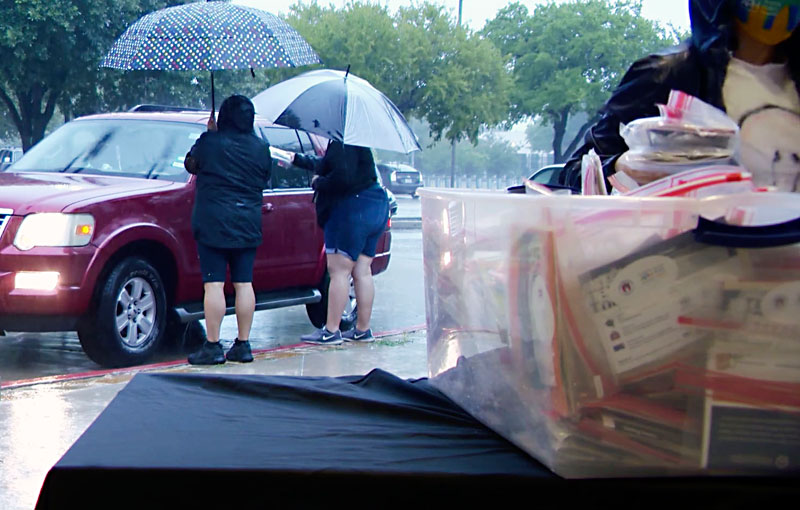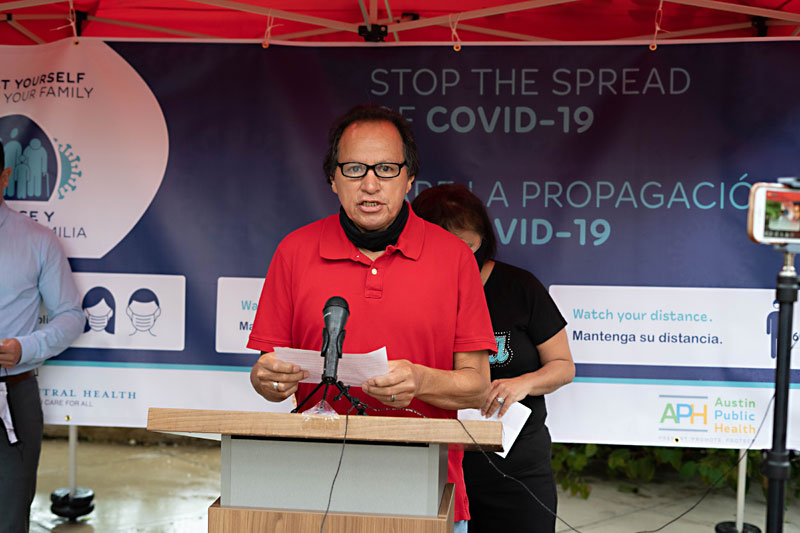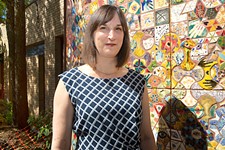Stay the COVID Course
Six months in, focus remains on Latinx health
By Margaret Nicklas, Fri., Sept. 11, 2020

At a press conference last week, doctors, public health officials, and COVID-19 survivors came together to urge local families to take precautions against the coronavirus and to "stay the course" in beating back the illness that has upended countless lives for the past six months – even as Labor Day celebrations and school openings raised new concern.
"This virus brings you down to your knees" and "takes all your energy," survivor Tim Zapata warned. Calling on husbands, fathers, brothers, uncles, and grandfathers, he said the coronavirus "is deadly" and "respects nobody" and urged community members to "love your families enough to stand together as a community ... Be healthy, safe, and wear your mask." Tim's wife, Ofelia Zapata, who also contracted COVID-19, added, "Having the virus was painful, it was sad, it makes you feel helpless and hopeless."
With these sobering reminders, Austin Public Health, Central Health, and CommUnityCare announced a broad effort to distribute free personal protective equipment for at least the next six weeks in target areas where COVID-19 test positivity rates are highest. The agencies hope to ward off more suffering, especially within Austin's Latinx community. Currently, individuals classified as Hispanic make up about half of all local COVID-19 cases, hospitalizations, and deaths, although only about a third of Travis County's population is Latinx.
Central Health's Elizabeth Marrero told the Chronicle that patients visiting any of 20 designated CommUnityCare clinic locations – including in Eastern Crescent communities where COVID-19 is more prevalent, such as Manor, Hornsby Bend, and Del Valle – will get a kit containing cloth masks and hand sanitizer, along with information about best practices and other resources. At the CUC clinics, which serve low-income and uninsured Travis County residents, PPE was already being distributed in small amounts, but Marrero told us this wider effort comes at an important time.
"People are starting to really understand a little bit more what is going to keep them safe," Marrero said. With APH lowering its risk guidelines to Stage 3 (yellow) and more businesses opening up, Marrero cautioned, "We don't want people to get complacent." To help protect vulnerable workers such as those in the construction industry, Central Health, in partnership with the Latino HealthCare Forum, Sendero Health Plans, and others, provided more than 500 businesses with thousands of kits to distribute to their employees.
For the public, APH will be distributing kits at some public libraries, recreation centers, the Mexican consulate, and other locations; sites and days/times can be found at www.austintexas.gov/ppe. The city will not require ID or proof of need for individuals to receive PPE at these events, according to an APH spokesperson.
Officials and community leaders cite a slew of reasons for the outsized impact of the pandemic on Latinx residents: language and other barriers to effective communication, a lack of trust in officials and institutions, and concern over losing income and employment after a positive diagnosis. In May the city's Hispanic/Latino Quality of Life Commission voiced its concerns: "Latino/Hispanics are often essential workers, uninsured, susceptible to chronic diseases and live in multigenerational households which allows for more spread of the virus." Many "fear that getting tested for COVID-19 could expose their immigration status" and "are not receiving enough bilingual, culturally sensitive educational materials regarding public health, safety and prevention about COVID-19."
Since at least June, APH has been trying to improve the situation. In an Aug. 28 memo, APH Director Stephanie Hayden reported on the status of these efforts, touting improved communication, strategies that have encouraged testing, and the hiring of Spanish-speaking contact tracers and community health workers. But Hayden acknowledges more work is needed. "We see the disparities among the Hispanic/Latinx community, and we resolve to build on what has been accomplished with community partners' feedback, support, and partnership," Hayden wrote.
Carmen Valdez, a professor with Dell Medical School and the Steve Hicks School of Social Work at UT, studies immigrant mental health and provided input to APH earlier this summer. In July, Valdez told the Chronicle that Austin needs "a comprehensive way of thinking about community health that from the very beginning addresses everyday experiences of racism, of exclusion, of violence, of fear." Valdez described the dehumanization that occurs when one is often told, "You don't belong, you are less than, and you are not worthy."
Providing basic financial and other support to those impacted by COVID-19 (see "Council: Cash on Hand") is an important immediate step, Valdez said, along with providing information in multiple languages and from trusted sources. In the longer term, she believes less restrictive policies allowing immigrants greater access to better-paying jobs, health insurance, and less segregated housing will be fundamental to promoting health.
Got something to say on the subject? Send a letter to the editor.









